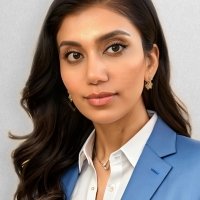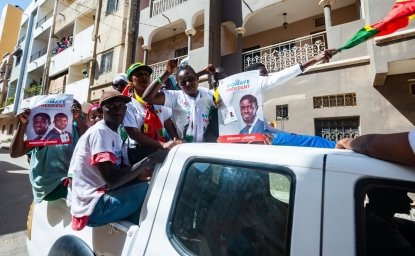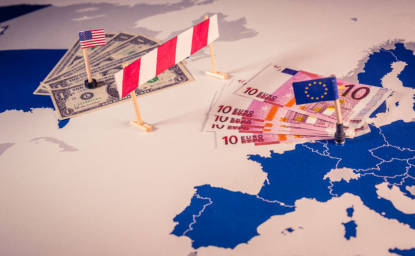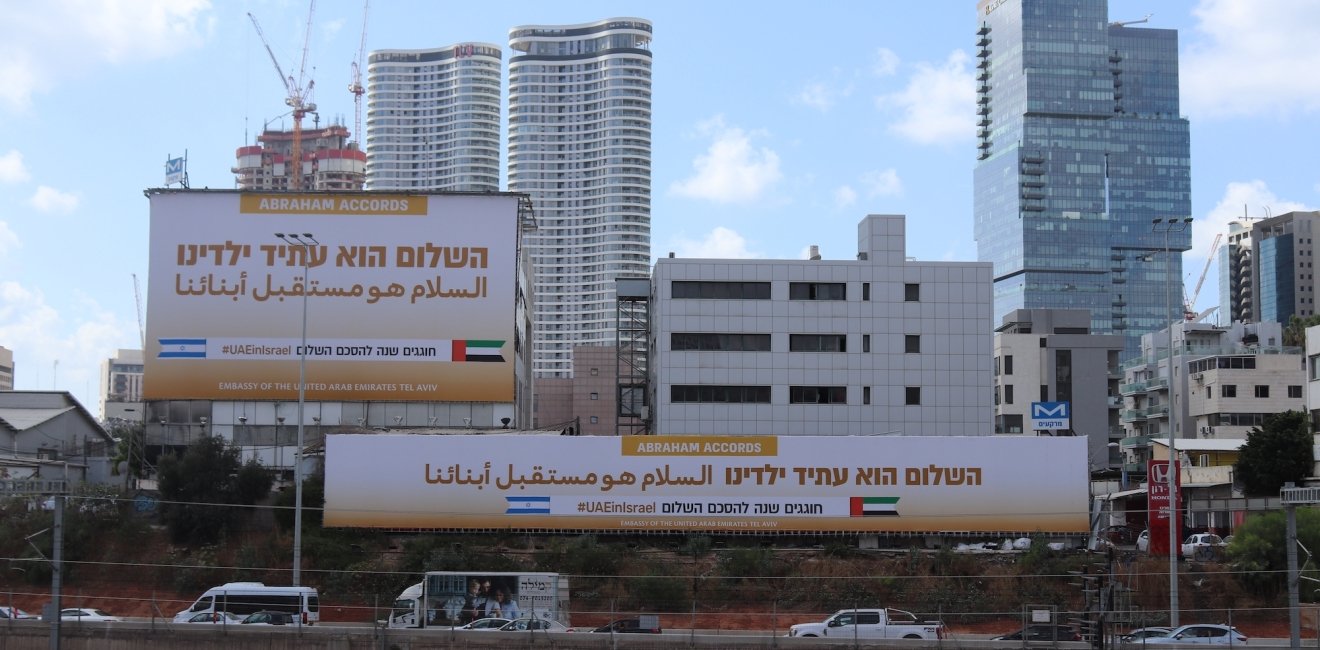In his first Middle East trip as President of the United States, Joe Biden appears to be keen to continue one of former President Trump’s most prominent foreign policy priorities: urging normalization between Israel and Arab states. Although the UAE and Bahrain signed the Trump-brokered Abraham Accords at a governmental level in 2020, challenges remain at the grassroots level.
In response, states across the GCC have pursued different strategies to mobilize popular sentiment. In the UAE, normalization initiatives in the educational and cultural spheres are carefully tailored to instill compliance to an Israel-friendly narrative. For non-signatory GCC states, such as Qatar and Saudi Arabia, normalization is less straightforward; however, even these states have taken steps to prepare citizens for a new geopolitical reality.
While some Emiratis celebrated the historical Abraham Accords in 2020, they were signed against a backdrop of common skepticism.
Changing the narrative
While some Emiratis celebrated the historical Abraham Accords in 2020, they were signed against a backdrop of common skepticism. Surveys have historically shown strong opposition to normalization. The ability of Emiratis to freely express their views however is very limited due to official restrictions. In nearly every country in the Arab World, the Palestinian cause is exceptionally sacred, with many citizens developing pro-Palestinian outlooks from a very young age. Therefore, neither US-driven peace agreements nor national policies will bear fruit for stakeholders overnight.
Given this context, the UAE has begun socializing the new narrative about Israel in the education field. In a piece celebrating the UAE-Israeli peace agreement, Hind Al Otaiba, former Director of Strategic Communications at UAE’s Ministry of Foreign Affairs, emphasized the role of education in breaking down “Long-held biases and misinformed taboos across societies and by all age groups.” In the spirit of Otaiba’s remarks, soon after signing the Abraham Accords, Emirati officials immediately embarked on a series of education reform projects. In January 2021, Emirati and Israeli Ministers of Education met virtually to facilitate higher education opportunities and academic exchange programs.
A few months later, in a video released by the Consulate General of Israel in Dubai on Twitter, Sumaiiah Al Meheiri joyfully announced becoming the first Emirati female to join the University of Haifa in Israel. Prior to Al Meheiri, Mansoor Al Marzooqi had become the very first Emirati enrolled at an Israeli university, IDC Herzliya. UAE Ambassador to Israel, Mohammed Al Khaja, took to Twitter to announce Al Marzooqi’s enrollment. He expressed in Arabic, “Education is a bridge to a better future and a milestone towards mutual success and progress.” His message was intended not only to celebrate a milestone, but to engage young Emiratis as well. Like many other public figures, Al Khaja depicts Emirati youth as aids to the UAE government in the peace-building process. In this way, officials challenge resistance and secure citizen participation in their political initiatives.
Starting with Education
Even if one cannot travel, however, the Emirati government has made learning about Israel readily available on its soil. In late 2020, Emirati officials announced the opening of The Educational Hebrew Institute (EHI) in Dubai and Abu Dhabi. In addition to language, the institute also teaches about Israeli cuisine and culture. In an interview by Deutsche Welle, Director of EHI Josh Samet stated he was astonished by the extent of the demand. Israel’s official Arabic Twitter account, @IsraelArabic also tweeted, “Hebrew language lessons are in great demand in the Gulf countries, especially in the United Arab Emirates, Bahrain and Saudi Arabia.” Yousef Al Hameli (@hameli1234) tweeted a video of himself writing in Hebrew. In the comments section, Avichay Adraee, IDF Spokesperson for Arab Media, commented in Arabic, “may god give you happiness.” As Israeli citizens take the lead to educate Emiratis about Israel's native language and culture in the UAE, a group of citizens tolerant of the Zionist state are beginning to emerge.
Although relations between the UAE and Israel are not brand new, the peace agreement allowed state actors in the Emirates to begin openly propagating the idea that Israel is not an enemy.
By the same token, in school textbooks, Israel is now portrayed in a strikingly different light. Based on a report by the Institute of Monitoring Peace and Cultural Tolerance in School Education (IMPACT-se), an Israeli non-profit, anti-Israeli sentiments have been reduced and moderated significantly. Although relations between the UAE and Israel are not brand new, the peace agreement allowed state actors in the Emirates to begin openly propagating the idea that Israel is not an enemy. The CEO of IMPACT-se, Marcus Sheff, stated that the new content was made available “on the desks of schoolchildren in the Emirates just two weeks after the announcement of the agreement.” These educational initiatives will potentially curb the magnitude of future opposition to normalization.
Non-signatory states
In other GCC states, normalization gestures have been implemented more subtly. In 2019, Middle East Media Research (MEMRI) and Anti-Defamation league (ADL) released reports criticizing Qatar’s school textbooks for alleged anti-Semitic content. Subsequently, the Qatari Ministry of Education amended and removed some texts mentioned in these reports. In IMPACT-se’s most recent report on Qatari textbooks, David Weinberg described the changes as “remarkable and somewhat encouraging.” The ADL and IMPACT-se publications were mentioned in the Department of State’s 2021 Report on International Religious Freedom: Qatar.
Beyond top-down changes, the exchange of diverse opinions about Israel is present in liberal academic settings. In Doha’s Education City, where several American universities have branch campuses, faculty members have facilitated dialogue about Israel that challenges the status quo. In his book on his experience as a Jew living in an Arab, Muslim country soon after 9/11, Garry Wasserman, a former professor at Georgetown’s campus in Qatar (GU-Q), discusses challenging deeply-embedded perceptions about Zionism in his classroom. He even arranged an open discussion between a group of Israeli students and a group of other Middle Eastern students in GU-Q’s campus. Exposure to counterarguments and other perspectives can potentially shape a new understanding of Israel beyond the Palestinian cause among some students.
For example, Andrew Jose, a freelance journalist and current student at Georgetown in Qatar, was part of class discussions in which Israel was a prime subject. “Pro-Israel discussions do take place quite often, from what I have seen. If not pro, there are indeed tolerant perspectives that are not anti-Israel, but see Israel as a legitimate actor in regional politics.” He also maintained that favorable views were articulated by some of his Arab classmates, “many of whom encourage free discussions about Israel.” Finally, Jose indicated that the university ensures the safety of students, especially when expressing dissenting views.
Nevertheless, considering the strength of pro-Palestinian voices in the Saudi street, swiftly implementing normalization policies would increase political tensions to a high degree.
Saudi Arabia
In the case of Saudi Arabia, The Ministry of Education has also modified content in school textbooks in recent years. IMPACT-se’s 2021-2022 report makes the case that prior to changes, anti-Semitic tropes were omnipresent, including those associated with prominent conspiracy theories. For example, in a social studies textbook, students learn that the 1969 arson of the Al Aqsa Mosque was a plot orchestrated by the Israeli government. Also, in a removed passage in a Hadith and Islamic culture textbook, students are taught that “the Zionist Occupation, and its associations and organizations, ceaselessly plot to demolish and destroy the Al-Aqsa Mosque, or burn it down and damage it.” Although the Saudi government took steps to moderate and improve content, experts argue that more changes have yet to be made. Nevertheless, considering the strength of pro-Palestinian voices in the Saudi street, swiftly implementing normalization policies would increase political tensions to a high degree.
Saudi Arabia has sought to shape public opinion and stir public debates about normalization through other means as well. In 2020, Saudi television channel, MBC, aired Um Haroun, a TV show based on lived experiences of Jews and Muslims in 1940s Kuwait. In the opening scene, actress Haya Abdul Salam engages in a monologue in Hebrew. In her last line, she says, “We are the Gulf Jews, we were born in the lands of the Gulf.” In another show, Exit 7, a comedy that discusses contemporary sociopolitical issues, an actor introduces a hint at normalization with Israel by downplaying the Palestinian cause. In an episode, Actors Nasser Al Qasabi and Rashid Al Shamrani discuss Israel and Palestine after Al Qasabi caught his son interacting online with an Israeli boy, Ezra. Al Shamrani accuses the Palestinians of being ungrateful for the Saudi government after everything it has done for them. “The enemy is one who does not appreciate you standing for him and curses you night and day, more than the Israelis do,” said Al Shamrani after Al Qasabi asserted that Israel is an enemy.
Taken together, these steps towards cultural accommodation of Israel are not without serious challenges. Formal normalization should not mainly concern peace-building initiatives and bilateral interests with Israel, such as the case in the UAE. Considering the deep-rooted pro-Palestinian spirit within GCC communities, the Palestinian cause should be a prime issue through which state actors actively demand concessions. Even though this would still not fully curb opposition at the grassroots level, stipulating viable solutions for Palestinians might reduce the high price of normalization.
The views expressed in these articles are those of the author and do not reflect an official position of the Wilson Center.
Author

Ph.D. Candidate, Faculty of Education, Cambridge University

Middle East Program
The Wilson Center’s Middle East Program serves as a crucial resource for the policymaking community and beyond, providing analyses and research that helps inform US foreign policymaking, stimulates public debate, and expands knowledge about issues in the wider Middle East and North Africa (MENA) region. Read more

Explore More
Browse Insights & Analysis
Africa Year In Review 2024: From Headlines to Trendlines



